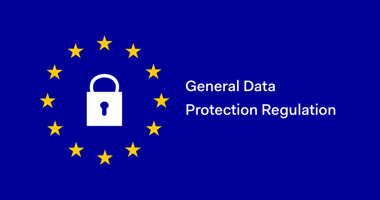Below are the February articles of interest from key trade publications, with excerpts highlighting...
Decideware’s “Agency Management Big 10” - Feb 2017
Below is the February articles of interest from key trade publications. This month's selection includes articles on the challenges that marketers have faced over the past year, how to get the most from your agencies in the upcoming year, as well as the increasing trend in client project-based assignments. We hope that you find this month's selection informative and valuable.
1) P&G confirms media review in UK and Northern Europe
http://www.campaignlive.co.uk/article/p-g-confirms-media-review-uk-northern-europe/1422728
The review comes at the same time as P&G chief brand officer Marc Pritchard’s has intervened in the media transparency debate.
Pritchard called on the industry to unite to tackle the issue and revealed P&G was reviewing all agency contracts in light of the "transparency" debate about rebates. "We have a media supply chain that is murky at best and fraudulent at worst," he said.
The owner of Fairy, Pampers, Gillette and Pantene spends an estimated £210m a year on media in the UK. The review is likely to be the biggest media pitch of the year in Britain.
2) What Were the Biggest Challenges for Marketers in 2016?
https://www.ana.net/blogs/show/id/42870
The ANA’s Marketer’s Edge program conducted research in 2016 to identify the top challenges facing marketers, and a few key themes stood out. Some even traversed all three studies, which focused on organizational culture, B-to-B marketing, and shopper marketing. Marketers from all disciplines and verticals reported challenges from advances in technology and nonlinear customer journeys. Here are the top Marketer’s Edge research findings from 2016and some predictions about where we’re headed.
3) IPA and production company row gathers steam
A further 69 production companies have put their weight behind a call for agencies to avoid a "rigged" bidding system. In an open letter, published yesterday in Campaign, the companies say they "don’t want to be part of a system" in which agencies invite external bids for production work that they are considering pitching for themselves.
Yesterday the IPA said it was "unreasonable" to suggest agencies should not pitch against production companies for the same work. The practice of competing for the same contracts is acceptable as long as agencies notify outside companies that they intend to do so, the IPA believes.
4) How to get the most from your agency relationships in 2017
Some are even requiring agencies to review each other as part of a 360-degree evaluation. The CMO of a large CPG company, for example, asks agencies to rate each other based on how well they “play on the team . . .” This feedback has a direct impact on each agency’s performance pay.
Building effective agency relationships is a two-way street. Part of being a great client is having a very clear internal operating model to avoid rework and to ensure that different parts of the business aren’t asking agencies for the same thing. In addition to setting clear objectives, you also need to establish a regular and ongoing dialogue with your agencies that goes beyond quarterly business reviews. A frequent cadence allows you and your agencies to be proactive and to test, refine, and optimize performance on a continual basis.
5) What Are We to Make of the Holding Companies in 2017?
https://www.mediavillage.com/article/what-are-we-to-make-of-the-holding-companies-in-2017/
The devil for the holding companies is in the detail -- in the balance between centralized initiatives and decentralized strengthening. In the meantime, though, clients continue to weaken all branded agencies through fee reductions and workload growth. This is a problem that does not go away.
Holding companies are now a mixed metaphor -- decentralized financial holdings that squeeze out improved profit performance from their stretched branded agencies and operational super-agencies that win new business and assemble the necessary resources.
6) Are Client Project-Based Assignments the New Normal?
https://www.mediavillage.com/article/are-client-project-based-assignments-the-new-normal/
Clients are now truly seeking best of breed whether it is within the holding company or from an outside source that offers a better level of expertise. So, client/agency relationships are becoming more project based. Much of this is coming from the digital environment (we are now in a tech-driven ecosystem) that represents a multitude of individual functions such as mobile, video, search, social media, content development, programmatic buying, data analytics, tracking, etc.
So one-size-fits-all holding company appointments are becoming less popular. The multi-disciplined retainer relationship is yielding to project-based assignments that are going to a variety of firms and the new order is being defined as best of breed. This presents its own set of issues as the coordination of services becomes more difficult and compensation formulas become more complex.
7) Brands: Agencies Need To Up Their Game In Data Management, CX
Forrester found that brands plan to invest more, with 57% of marketers saying they base every major marketing decision on customer insight. Over half say they rely on their agencies to use a data management platform on their behalf.
“Agencies must embrace marketing technology and data to survive,” Forrester concluded in its report entitled “The future of Agencies: A Spotlight On Customer Experience.”
8) An Open Letter to Clients Considering an Ad Agency Review
http://adage.com/article/viewpoint/open-letter-clients-ad-agency-review/308002/
http://adage.com/article/viewpoint/open-letter-clients-ad-agency-review-part-2/308050
Streamline the traditional process. A raft of RFIs, chemistry meetings, workshops, tissue sessions, check-ins, and final presentations is overkill. Maybe three well-arranged meetings is really all you need:
- Set-up "chemistry" sessions (at the agencies) -- and let the agencies determine how they want to share themselves with you. That'll give you a sense of their priorities and values much more so than any canned case studies.
- Then host a "briefing" that's really an honest conversation about your heartaches and hopes. Invite a cross-section of your company to give these prospective partners an angle on your business beyond the one shared by marketers alone. And leave them with a question, one searing question to consider for the next couple of weeks.
- Then have a "creative discussion" that gives the agency an opportunity to answer that question. Set aside a few hours. Sure, many agencies will come to that meeting with "work" and solutions. That's ok. But it's also ok if they come with questions or concerns or inklings -- any expressions of imagination.
9) MEC's Kaplowitz Named New 4As Chief
http://www.mediapost.com/publications/article/295922/mecs-kaplowitz-named-new-4as-chief.html
The 4As has appointed MEC North America CEO Marla Kaplowitz as the ad trade group’s new president and chief executive officer. She will succeed Nancy Hill, who has led the group since 2008 and indicated last July that she would be stepping down.
Commenting on her appointment, Kaplowitz stated: “As a passionate member of this industry for nearly 30 years, I'm thrilled to join the 4As at this exciting and pivotal time for marketing and communication," adding she would work to "ensure a thriving future.”
10) Media is broken and 'needs a total reset'
http://www.campaignlive.com/article/media-broken-needs-total-reset/1425550#p6XLrv7m53WqyCA4.99
A recent survey by media consultancy ID Comms found that advertisers were failing to meet expectations in four key areas: setting clear KPIs for media; having a point of view on ROI for media; having a well-established media community internally; ad leading media decisions from marketing rather than procurement.
Part of the reason could be that advertisers were viewed by agency respondents as more focused on media buying and efficiency (scoring 3.2) rather than media planning and effectiveness. These advertisers are also more likely to view agencies as commodity suppliers (score 3.5) rather than strategic partners.



